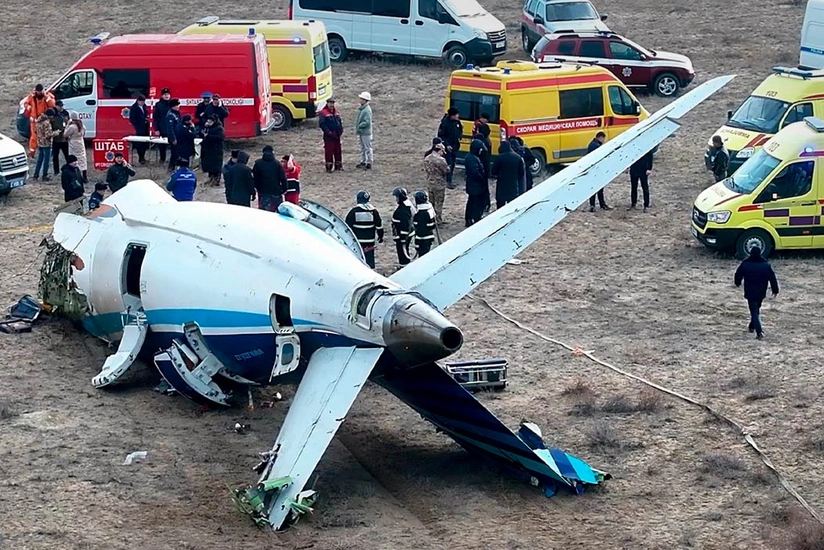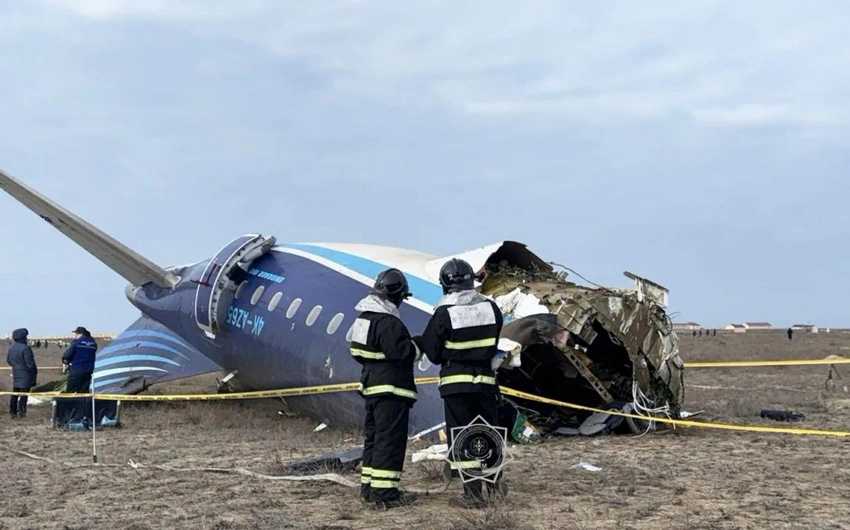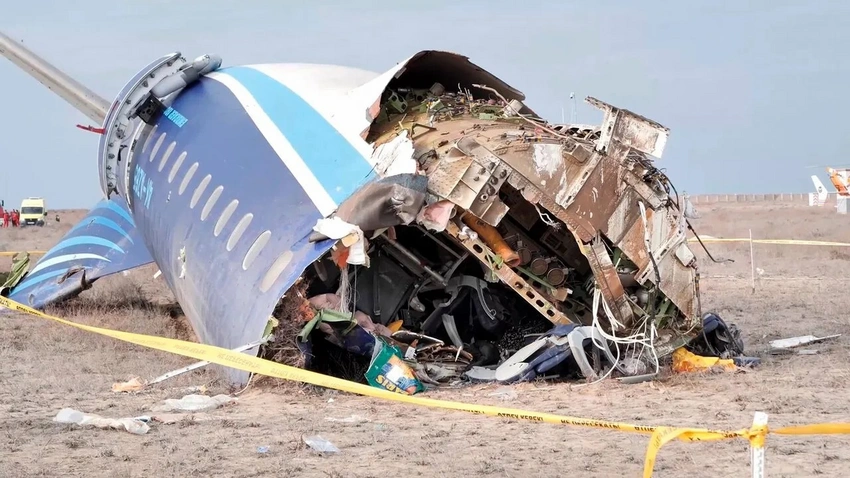Reaction without delay: How Azerbaijan and Kazakhstan acted in conditions of plane crash
- 26 December, 2024
- 05:49

Today, the aviation world was shaken by news of an AZAL Airlines Embraer 190 AR crash, which was operating a Baku-Grozny flight. The plane crashed near the Kazakhstani city of Aktau. There were 67 people on board, of whom 29 survived thanks to the crew's prompt actions and the aircraft's design features. The causes of the crash have not yet been established, and it would be premature to draw any conclusions before the investigation is complete.
Rapid Response
As soon as the information about the disaster reached emergency services, the Azerbaijani leadership demonstrated a lightning-fast reaction. When the crash information was received, Azerbaijan President Ilham Aliyev's plane was over Moscow. An order was given to immediately return to Baku, and the aircraft began functioning as an operational headquarters while in the air. The president was informed about the situation directly on board and gave instructions to relevant structures. Upon arrival at the Baku airport, the head of state held an urgent meeting with key government agencies. A state commission was established to investigate the incident, and a group of representatives from ministries and other structures was formed and promptly dispatched to the crash site. Though the incident occurred outside national airspace, Azerbaijani state bodies, in coordination with Kazakhstani colleagues, tried to keep the public maximally informed.

The Kazakh side also demonstrated high efficiency and sensitivity to the tragedy. Direct information exchange between the relevant authorities of both countries was quickly established. Rescue operations began at the scene, with help coming from local residents who donated blood for the victims. The public in Kazakhstan showed deep empathy: flowers were laid at the Embassy of Azerbaijan in Kazakhstan. Such actions emphasize the importance of international solidarity in times of tragedy.
Reliability and professionalism in emergency situations
Although the official causes of the disaster are yet to be determined, it is already clear that the crew's actions played an important role in saving some of the passengers. Video footage shared on social media shows the truly heroic and professional actions of the pilots, who did everything possible to save lives. This is the third aviation disaster in AZAL's history over the past three decades. The first occurred in 1995. A Tu-134B-3 aircraft, flying from Nakhchivan to Baku, crashed due to engine failure and crew errors. 52 out of 82 people on board died. The second crash happened in 2005. An An-140 aircraft flying from Baku to Aktau fell into the Caspian Sea due to the crew's loss of spatial orientation. All 23 people perished.

Each tragedy required even greater fleet modernization and improvement of crew training standards. Today, AZAL's air fleet consists of 25 aircraft used for regular passenger flights. The average age of the fleet is 11 years. Along with acquiring new aircraft, the airline is gradually phasing out old planes to improve the efficiency and environmental sustainability of its fleet.
To further enhance the reliability and efficiency of air transportation, the company has signed contracts for the delivery of new Airbus Neo aircraft and wide-body Boeing 787 Dreamliners.
AZAL's fleet also includes Embraer 190 aircraft, which have increased stability in challenging weather conditions, including high humidity and high temperatures. This model is also recognized as one of the most reliable models for regional flights. By 2030, AZAL plans to transition to using only 2-3 types of aircraft, reducing the average fleet age to 5-6 years, which is a good indicator for the aviation industry. This approach will significantly reduce costs associated with aircraft maintenance and personnel training.
To enhance pilot qualifications, since 2010, the AZAL Pilot Training Center has been operating in Baku, providing training for civil aviation specialists. More than 7,000 people annually undergo advanced training courses, including practical training on modern flight simulators for Airbus, Boeing, ATR, and Embraer.

A specialized training complex for Embraer 190 pilots has been installed at the center, allowing training to be conducted in Azerbaijan without sending specialists abroad. The center also serves pilots from foreign airlines. All these measures demonstrate Azerbaijan's commitment to achieving reliable air transportation, implementing modern technologies, updating the aircraft fleet, and improving safety standards. Today's disaster reminds us of aviation's unpredictability and the importance of continuous work on improving safety.
Unfortunately, air crashes are an integral part of world aviation history. According to current data, a person would need to fly every day for more than 25,200 years to be involved in a fatal accident. According to the IATA report, turboprop aircraft accounted for 36% of all aviation incidents and four out of five fatal accidents in 2024.
